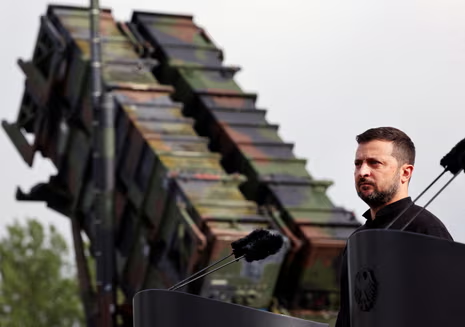The United States has paused deliveries of certain air defense missiles and precision munitions to Ukraine, citing fears that its own weapons reserves have fallen to levels that could jeopardize military readiness. This decision, announced in early June and now taking effect, marks the most significant change in U.S. policy toward Kyiv under President Donald Trump, who has favored negotiations over continued arms support.
Pentagon Review Triggers the Pause
Elbridge Colby, the Pentagon’s policy chief, ordered the suspension after a thorough review of Defense Department munitions stockpiles revealed that inventories of artillery rounds, air defense missiles and precision-guided bombs were dropping to worrisome lows. Three officials who spoke with Politico confirmed that the department’s internal audit flagged these declines as problematic enough to halt some promised shipments.
White House spokesperson Anna Kelly framed the move as a necessary step to “put America’s interests first.” She stressed that the United States remains the world’s top military power and that the pause reflects responsible stewardship of its armed forces. “Our stockpiles must support global commitments while safeguarding our own security,” Kelly said.
Impact on Ukraine Amid Intense Attacks
The timing of the halt has drawn sharp concern in Kyiv, where officials report some of the largest Russian missile and drone barrages since the full‑scale invasion began. Ukrainian leaders argue that air defense systems and precision munitions are critical to protect civilians and key infrastructure. Defense analysts note that restricting these shipments could leave gaps in Ukraine’s layered defense and force the country to rely more heavily on allies.
Under the existing $61 billion aid package approved in April 2024, Ukraine has drawn on nearly all allocated funds. Trump’s administration has not authorized any new packages, instead emphasizing diplomatic efforts to end the conflict. That shift has prompted Britain and Germany to step up their contributions, aiming to fill the void left by reduced U.S. support.
Context of Long‑Term U.S. Support
Since Russia’s invasion in February 2022, the United States has provided Ukraine with over $66 billion in military assistance. Periodic concerns about dwindling U.S. inventories have surfaced before, with Pentagon officials in late 2022 warning that some war stocks were approaching minimum levels needed for training and contingency plans. The current decision represents the first time that promised munitions deliveries have been actively withheld.
European allies have taken on a more visible role coordinating aid and reassuring Ukraine of continued support. However, analysts caution that unless U.S. production ramps up, allied contributions alone may not fully meet Kyiv’s growing demands for defensive weapons.
Personal Analysis
This pause underscores a growing tension between sustaining Ukraine’s defense and preserving U.S. military readiness. On one hand, the move is a prudent measure to ensure that stockpiles do not fall below critical thresholds—an obligation often overlooked in the rush to supply allies. On the other, it risks emboldening Russia by signaling wavering support and could erode Ukraine’s confidence in its most powerful backer. In my view, Washington needs a dual-track approach: ramp up domestic munition production while maintaining the flow of key defensive systems to Ukraine. Only then can it meet its commitment to Kyiv without undermining its own national security.
Sources: CNN

